Sanford Community
- Wellness Leader Academy
- Sanford Research Fellows
- Sanford Scholars
- MedGap Sanford Scholars
- Compassion Ambassador Program (CAmP)
- Changemaker Fellows: Anti-Racist Pedagogy Learning Community
Modeled after our Sanford Scholar Award Program at the UC San Diego School of Medicine, CAmP provides opportunities to all eligible first-year medical students at partner institutions to conduct mentored projects that aim to understand and/or increase empathy and compassion.
In addition to implementing empathy and compassion projects, CAmP students engage in a 3-day summer program in San Diego that is designed to enhance overall project efficacy, further develop empathy and compassion skills, and create a cohesive cadre of student leaders in empathy and compassion. The award provides financial support to students for their compassion-related projects under the guidance of a faculty mentor at their own institution. Mentors assist scholars in carrying out their projects by providing guidance at all stages of the project. CAmP students benefit from mentor guidance and expertise, mentors benefit from funded student support for projects, and the community at-large benefits from impactful empathy and compassion projects.
Somutochukwu (Sommy) Agu

Faculty Mentor: Dr. Nancy Sohler
Institution: City University of New York (CUNY) School of Medicine
Project Title: Centering Empathy in Medical Education: Creating a Curriculum for Caring for People Who Use Drugs
Project Description: This project develops an evidence-based, active learning curriculum for first-year medical students to build empathy and skills for caring for people who use drugs (PWUD). Our design focuses on identifying and reducing bias, improving communication, and understanding the social factors affecting PWUD in New York. The curriculum will be piloted at the CUNY School of Medicine and will include discussions informed by addiction medicine fellows, communication simulations, and case-based learning. These components aim to increase students’ confidence and willingness to provide compassionate, effective care and to shift how future physicians support individuals who use drugs in clinical settings.
Kevin Baijoo
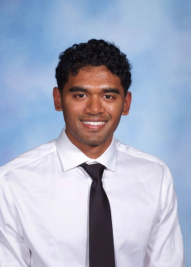
Faculty Mentor: Dr. Susan C Ball
Institution: City University of New York (CUNY) School of Medicine
Project Title: Introducing the Power of Storytelling & Lived Experience to Opioid Overdose
Response Training Among New York City Medical Students
Project Description: This project aims to introduce narrative storytelling and lived experience
components into opioid overdose prevention training at the CUNY School of Medicine (CSOM)
and assess its effectiveness. Over the course of one academic year, second-year medical students
(MS2s) will attend three speaker sessions featuring individuals directly impacted by opioid
use—such as physicians, harm reduction workers, and people with experience using opioids.
These sessions will be piloted in the required CSOM Practice of Medicine course for MS2s and
accompanied by an initial Naloxone training session. These sessions will also include guided
reflections to explore cultural influences, implicit bias, and stigma. Students will complete pre[1]and post-participation surveys, as well as a final focus group, to evaluate changes in perception
and empathy toward people who use drugs. By integrating personal stories into clinical
education, this project seeks to humanize substance use disorder, promote health equity, and
inspire more compassionate, culturally sensitive care among future healthcare providers.
Hannah Crowe
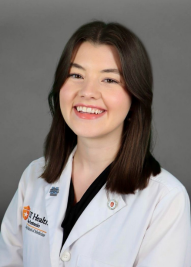
Faculty Mentor: Dr. David Roberts
Institution: University of Texas Health Science Center at San Antonio
Project Title: Creating compassionate interactions with psychiatric patients by enhancing motivational interviewing skills in medical students
Project Description: This project aims to enhance compassionate interviewing skills among medical students volunteering at Alpha Home Clinic in San Antonio, Texas. This clinic serves women experiencing substance use disorders. Through motivational interviewing (MI) training, students will develop empathy-driven communication techniques. This study will assess students' interest in training, measure skill improvements, and compare experiences between trained and untrained students. Training includes online sessions, roleplay exercises, and practical resources. Ultimately, we seek to better equip future physicians to serve marginalized populations by promoting more effective and compassionate healthcare delivery by fostering empathy, reducing bias, and promoting patient autonomy.
Inara Jiwani

Faculty Mentor: Dr. Megan Freeman
Institution: University of Texas Health Science Center at San Antonio
Project Title: Bridging the Gap: Enhancing Medical Student Compassion and Confidence in Disability-Inclusive Care
Project Description: Medical students often report feeling under-prepared to care for patients with disabilities, contributing to suboptimal care and poor health outcomes for this vulnerable population. This project aims to increase medical student confidence and compassion through a structured workshop series. Workshops will include a patient panel, disability-inclusive history-taking practice, and group discussions on improving clinical accessibility. Students will also complete a brief shadowing experience with providers who routinely care for patients with disabilities. Pre- and post-surveys will assess impact, with the long-term goal of integrating more disability-informed care education into the Long School of Medicine medical curriculum
Isabelle Lehman
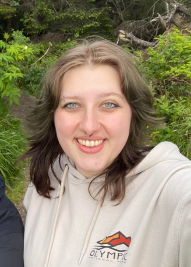
Faculty Mentor: Dr. Craig Uthe
Institution: University of South Dakota Sanford School of Medicine
Project Title: Medical Student Perspectives: Measuring Bias and Empathy Response of Students Exposed to Video Essay Material
Project Description: The goal of this project is to find out if medical students exposed to video essay material will generate higher empathy, lower bias, and/or higher positive regard for patients with opioid use disorder. Research shows that greater empathy and higher positive regard for a patient population can improve outcomes. If the research shows that exposure to video essay material increases positive regard and empathy for this patient population, that could be another tool in the toolbox of physicians who work closely with patients with OUD.
Lacey Person

Faculty Mentor: Dr. DenYelle Baete Kenyon
Institution: University of South Dakota Sanford School of Medicine
Project Title: Cultivating Compassion: Ensuring Competency in LGBTQ+ Care for Medical Students in South Dakota
Project Description: The goal of this project is to improve compassionate, competent care for LGBTQ+ patients by enhancing medical student education through peer-led challenges, reflective exercises, and accessible best practices. While most medical students report feeling comfortable treating LGBTQ+ patients, studies show discomfort persists around key identity-related topics, contributing to healthcare disparities. Through new-student orientation workshops, interest group events, weekly challenges, and the development of an LGBTQ+ Best Practices Guide for South Dakota students and physicians, this initiative promotes empathy and real-world application. The project ultimately seeks to reduce bias, strengthen physician-patient relationships, and prepare future physicians to meet the needs of LGBTQ+ patients with compassion.
Varun Ravichanran
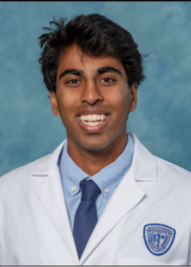
Faculty Mentor: Dr. Elizabeth Fine Smilovich
Institution: Case Western Reserve University School of Medicine
Project Title: Investigating how long-term interactions with older adults can affect medical students’ empathy
Project Description: The Kowal SAGE program at CWRU SOM aims to connect medical students with older adults. First-year medical students will meet monthly with older adults as part of the program. Using this program, this project will assess how long-term interactions with older adults impacts medical student empathy. Additionally, this program aims to strengthen relationships between medical students and older adults. Empathy will be measured using surveys, and scores will be compared between a group of students who participate in the Kowal SAGE program and a group of students who do not. The goal is that this project demonstrates a potential strategy to increase medical student empathy and prevent the decline that is being seen.
Muskan Sidhu
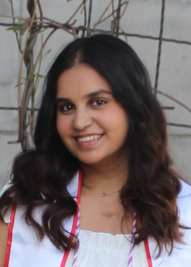
Faculty Mentor: Dr. Katie Coyne
Institution: Case Western Reserve University School of Medicine
Project Title: The Role of Narrative Medicine in Improving Empathy Amongst Medical Students for Patients with Endometriosis
Project Description: Endometriosis is a prevalent disease which is widely misunderstood within the healthcare field. Due to vague clinical presentation and systemic health barriers, it can be difficult for patients to receive timely and compassionate care. This study will introduce a narrative medicine approach to examine whether watching an endometriosis patient's self-recorded video can elicit a more compassionate response than students who are presented with just medical information about the disease. The objective of this project is to increase empathy amongst medical students for patients with endometriosis to help combat some of the neglect that patients may face.
Vishu Chandrasekhar
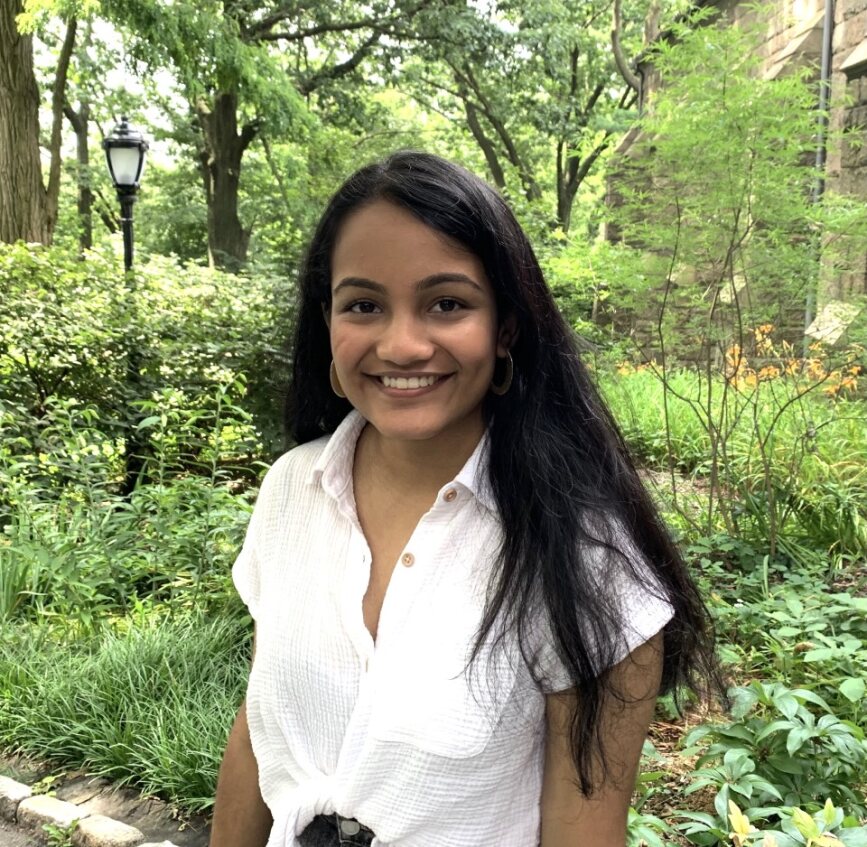
Faculty Mentor: Dr. Mamta (Mimi) Singh
Institution: Case Western Reserve University School of Medicine
Project Title: Effects of Narrative Medicine on Enhancing Geriatrics Education and Reducing Implicit Bias Against Older Adults Among Medical Students
Project Description: Ageism’s adverse impact on healthcare outcomes, including the ageism older adults face from healthcare professionals, has established it as a social determinant of health. Designing interventions to combat ageism in medical trainees is difficult, however, because ageist cultural practices are so deeply embedded in medical training. This project investigates the effectiveness of a narrative medicine intervention in combatting the implicit biases medical students hold about older adults. Medical students will interview an older adult about their life story and then personally transcribe and condense it into a document. After the intervention, they will be assessed for any changes in their attitudes about older adults and aging.
Nicholas Cordero
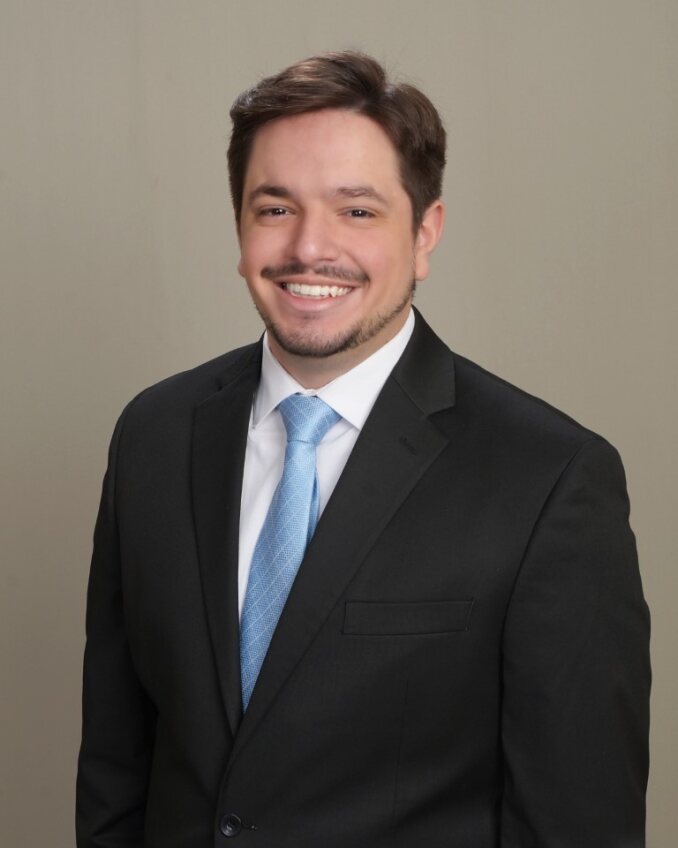
Faculty Mentor: Dr. Omrana Pasha-Razak
Institution: City University of New York School of Medicine
Project Title: The CUNY School of Medicine Human Rights Clinic
Project Description: The mission of the CUNY School of Medicine Human Rights Clinic (HRC) is to assist asylum seekers in the New York City area who are currently awaiting adjudication of ongoing asylum claims. Medical volunteers at the HRC will provide people who have experienced torture or other human rights abuses with pro bono forensic medical evaluations that will be used in medicolegal affidavits to support asylum claims. The HRC will collaborate with local service providers to assist clients in accessing necessary community resources, such as primary medical care and housing support. Additionally, the HRC will provide service learning opportunities for medical students in the area of asylum medicine. Through these opportunities, medical students can develop empathetic communication skills essential for their future work with historically marginalized and vulnerable populations.
Sanjna Das
Faculty Mentor: Dr. Nico-al Gotera
Institution: University of Texas Health Science Center at San Antonio
Project Title: Examining the Effect of Engaging in Street Medicine on Empathy and Compassion Among Medical Students
Project Description: This project will explore how engaging in street medicine in collaboration with Street Medicine San Antonio affects empathy and compassion within the medical student population. Students will have the opportunity to learn about the relationship between housing insecurity and physical/mental well-being through healthcare-focused street outreach. One of the goals for this study is to help medical students develop an understanding of the unique challenges faced by homeless individuals so that they can better address the needs of this population as future providers. Additionally, the findings of this study will hopefully provide support for the integration of street medicine-focused experience into the Long SOM curriculum.
Kimberly Diwa
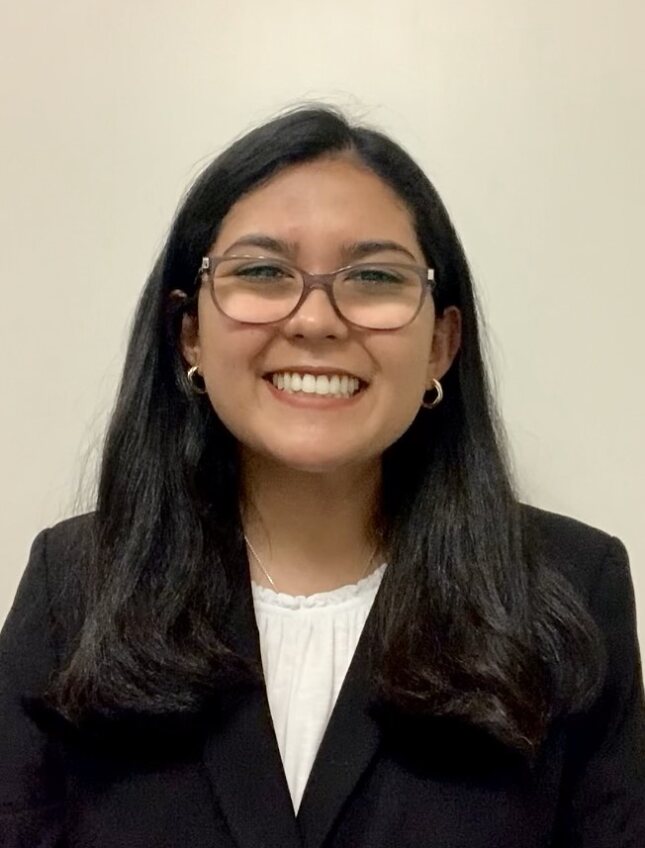
Faculty Mentor: Dr. David Roberts
Institution: University of Texas Health Science Center at San Antonio
Project Title: Enhancing Compassionate Engagement with and Teaching Self-Compassion to Family Members of Individuals in Recovery from Mental Health Crises
Project Description: Mental health crises have profound impacts on both the individuals who live through them and the individuals who care for them, with family members of those with serious mental illness (SMI) having higher rates of depression and poorer perceived physical health. Hence, this project aims to enhance the support offered to family members of individuals living with mental illness by (1) observing the extent to which following up with family members after support group meetings via phone effectively conveys compassion and (2) developing a brief presentation and workbook to introduce family members to Self-Compassion techniques.
MarieElena Harrison
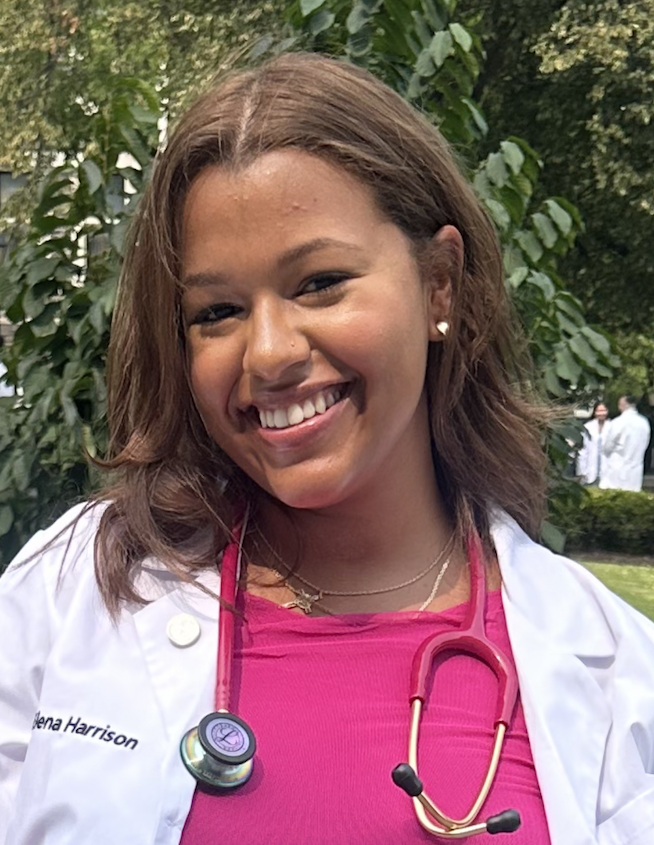
Faculty Mentor: Dr. Kirsten Roberts
Institution: City University of New York School of Medicine
Project Title: Stirring the Soul: Preserving the Culture of Underrepresented Medical Students Through the Art and Science of Cooking
Project Description: As a medical student, I struggle to nourish myself with inadequate time and money. While this experience is shared by many, I am interested in the psychological and emotional loss of culinary traditions in underserved communities for which food serves as a conduit for fostering wellness through cultural preservation. Inspired by personal experiences, I aim to explore how cooking intersects with the well-being of diverse students. My project involves auto-ethnographic writing, student collaboration, and a Narrative Medicine intervention. Through workshops, participants will develop personalized food initiatives. This study aims to enrich medical education with cultural inclusivity and holistic healthcare approaches, rooted in justice and equity.
Kailah Hyndman
Faculty Mentor: Dr. Soberjot Singh
Institution: City University of New York School of Medicine
Project Title: Confronting Anti-Blackness in Medical Education: A Narrative Medicine Approach to Cultivating Compassion for Self and Others While Addressing Bias Through Film Analysis
Project Description: The project outlines a pilot program integrating Narrative Medicine and film analysis to examine biases, particularly Anti-Blackness, among the medical curricula. Utilizing horror films featuring Black characters as a focus, the program aims to foster introspection and discussion on societal perceptions and stereotypes. Through self-reflection and dialogue, students will confront biases and explore their origins, with assessments measuring changes in perceptions. Led by a Black woman in medicine, the project emphasizes equity and inclusion, offering a platform to dissect systemic issues within healthcare. This comprehensive approach seeks to cultivate empathy and understanding, fostering a more conscientious and equitable medical community.
Ayesha Khan
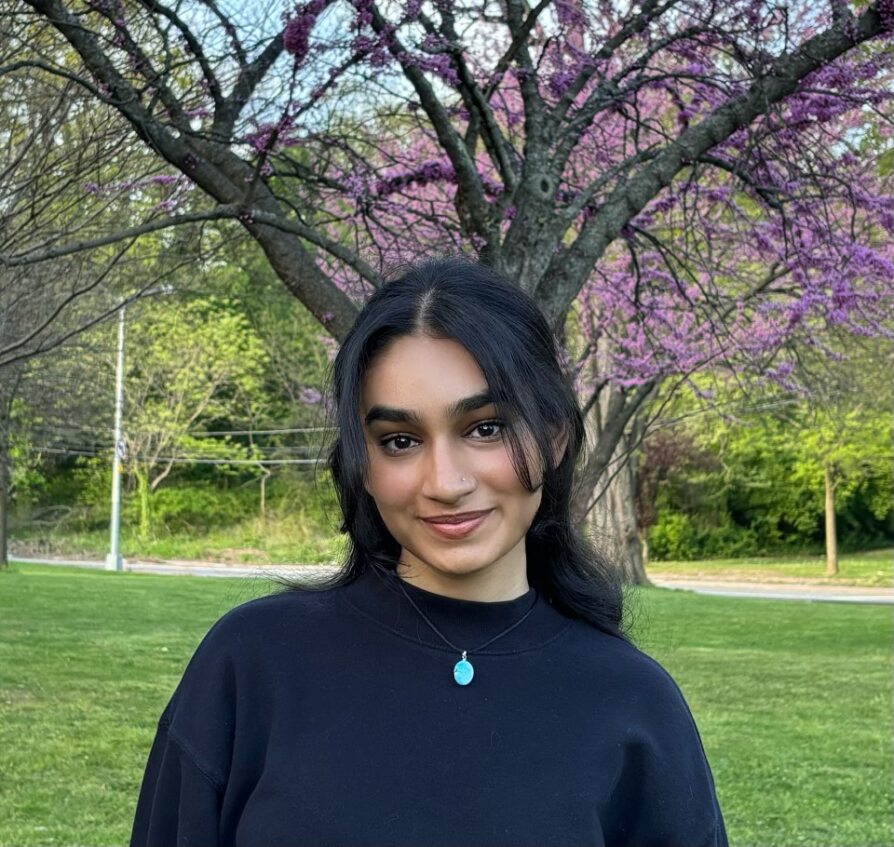
Faculty Mentor: Dr. Lisanne Hauck
Institution: City University of New York School of Medicine
Project Title: Developing Medical School Curriculum in Asylum Medicine and Forensic Evaluations
Project Description: The CUNY School of Medicine (CUNY Med) is creating a student-run Human Rights Clinic (HRC) that will prioritize pro bono forensic medical evaluations for asylum-seekers in NYC. Over the next year, I will work closely with our course directors to simultaneously develop and implement a curriculum emphasizing competency in evaluating traumatized and sensitive populations, alongside effective communication of findings into medico-legal documentation. This course will help inform the simultaneous development of a Track of Distinction, a dedicated program to train students interested in asylum medicine and eventually support capstone projects in the areas of research, service, and advocacy.
Samya Konda
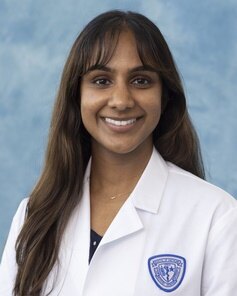
Faculty Mentor: Dr. Kimberly Gifford
Institution: Case Western Reserve University School of Medicine
Project Title: The Role of Generative Artificial Intelligence to Promote Reflection about Character Virtues and Inequity in Medical Education and Healthcare
Project Description: Reflection can be used in a multitude of ways to help medical students develop their professional identity and practice. Although feedback from faculty and peers plays a crucial role in this process, it can lack uniformity and timeliness. This project aims to explore the impact of integrating Generative Artificial Intelligence (AI), specifically the Reflective Clinician app, into medical student reflection practices at Case Western Reserve University School of Medicine. By comparing traditional written reflections to AI-guided reflections, the study seeks to deepen reflection, promote discussion of values, and foster awareness of healthcare injustices and inclusivity among medical students, potentially enhancing their professional development and practice.
Neelufar Raja
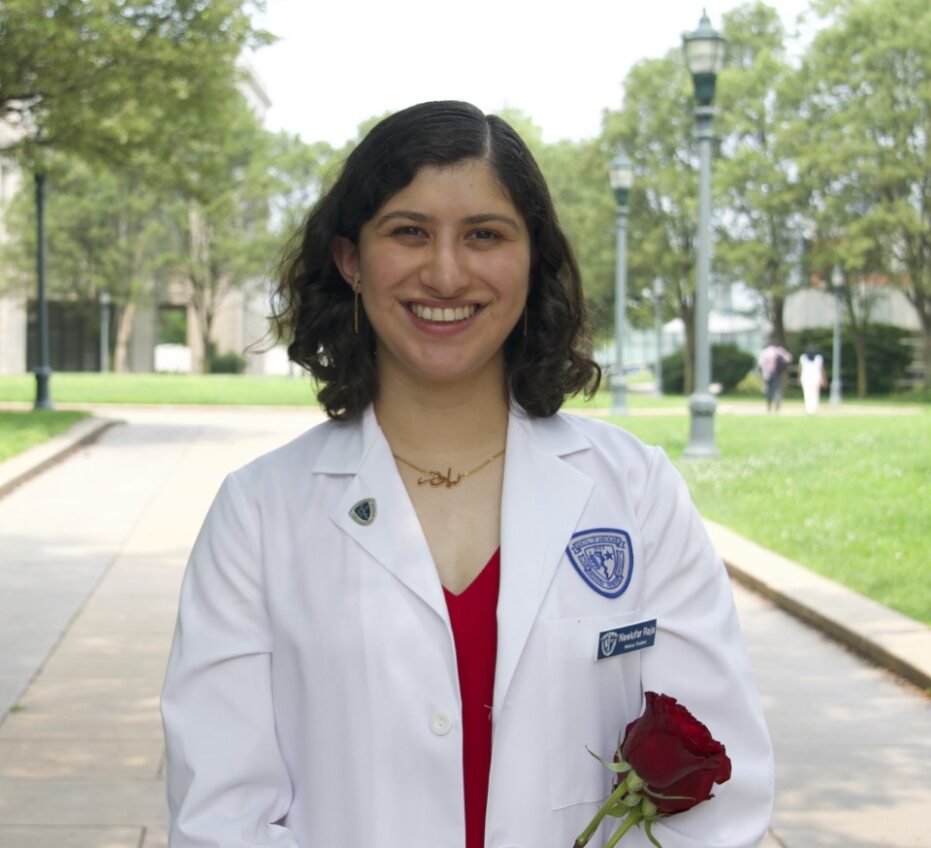
Faculty Mentor: Dr. Erin Gentry Lamb
Institution: Case Western Reserve University School of Medicine
Project Title: Medical Graphic Novels as Tools for Increasing Empathy in Medical Students
Project Description: As the humanities have become increasingly more integrated into medical education, graphic novels have been used as teaching tools for medical students. Graphic novels are a medium through which patients can express their firsthand experiences of illness and recovery in an accessible and deeply personal manner. This project seeks to assess the effectiveness of reading medical graphic novels and discussion exercises on medical students’ levels of empathy towards stigmatized illnesses and patient populations. Additionally, we hope to compare the responses of empathy in students participating in the graphic novel sessions with those of students who only attend the required Tuesday Seminar sessions in the Case Western Reserve University School of Medicine curriculum.
Phebie Rossi
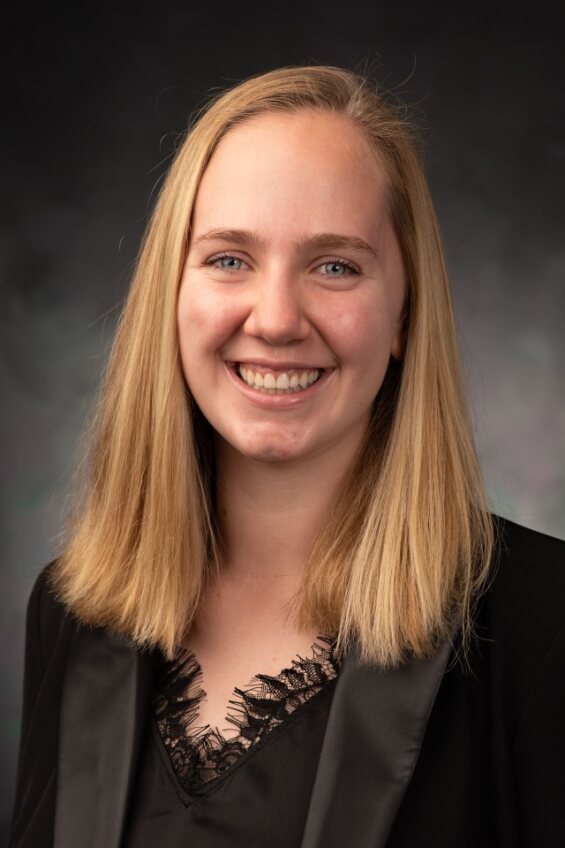
Faculty Mentor: Dr. Michele Schimelpfenig
Institution: University of South Dakota Sanford School of Medicine
Project Title: Walk a Mile in Someone Else’s Shoes: An Experiential Approach to Cultivating Compassion in Future Physicians
Project Description: Prior to entering clinics and hospitals following didactic training and Step 1, second year medical students at the Sioux Falls, SD campus of USD SSOM will enter the community for one half-day as a member of a vulnerable population. Groups of three to four students will be homeless, battered women, or undocumented uninsured citizens and will have to complete a series of objectives to gain a better understanding of the lives and struggles their patients experience before walking in the clinic.
Viren Sehgal
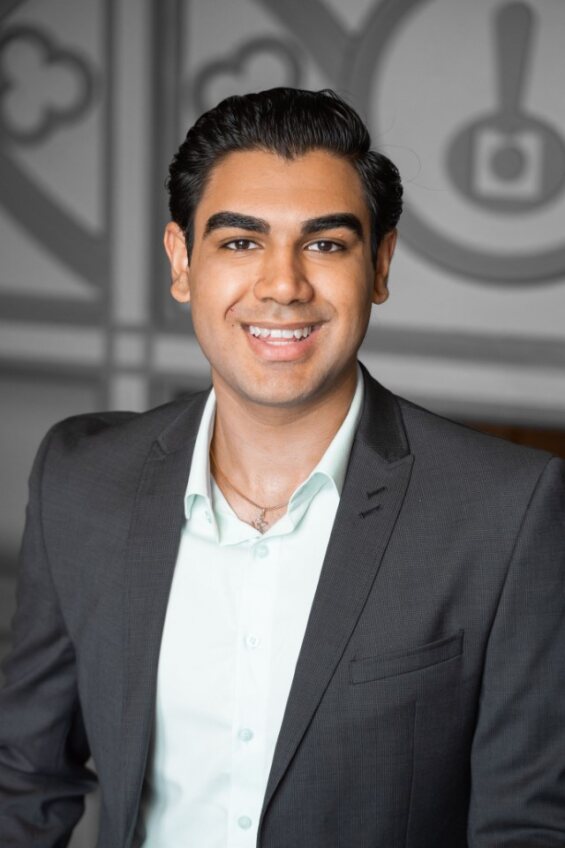
Faculty Mentor: Dr. Nancy Sohler
Institution: City University of New York School of Medicine
Project Title: Prepping for Patients, Not Paperwork: Evaluating the Effectiveness of the Asylum Clinic Curriculum
Project Description: We are establishing a clinic for asylum seekers’ medical evaluations at CUNY Med. The program pairs students with professionals to conduct these evaluations and complete legal documents alongside an integrated asylum medicine curriculum. We aim to assess how the clinic and related classes impact student knowledge, awareness, and attitudes towards asylum medicine. We expect students to gain a deeper understanding of the legal and medical aspects of caring for asylum seekers, along with culturally sensitive examination skills. The study also anticipates a more positive and empathetic outlook towards this population. By focusing on training future healthcare professionals to serve asylum seekers, this project aligns with CUNY Med's social mission and promotes health equity through culturally competent care. Evaluating the program's impact will provide valuable data on improving social justice, health equity, and inclusivity in medical education and patient care.
Madeline Vagts
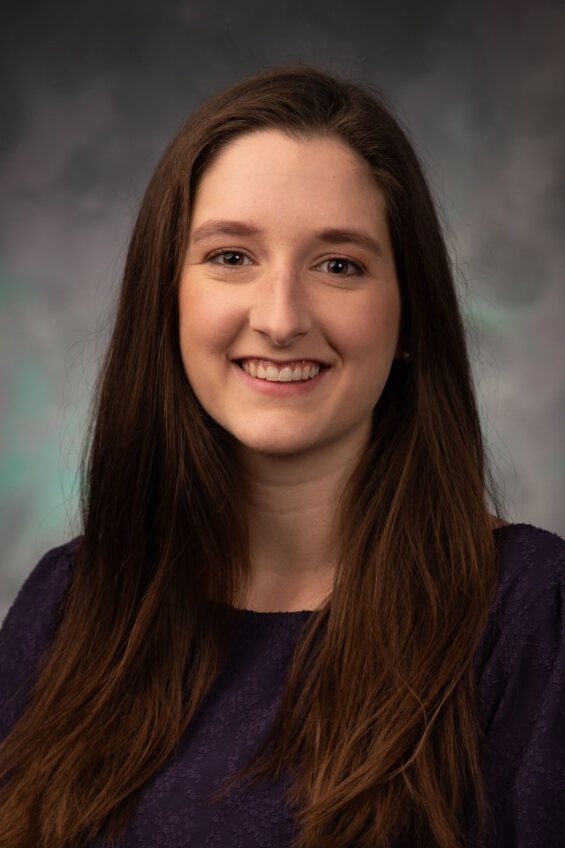
Faculty Mentor: Dr. Craig Uthe
Institution: University of South Dakota Sanford School of Medicine
Project Title: Hygiene Matters: Integrating Patient Hygiene Goals into Treatment Plans for Enhanced Compassionate Care
Project Description: This project aims to improve patient hygiene in hospitals by advocating for its inclusion in care plans. Through surveys and education, healthcare providers will learn about the importance of patient hygiene for comfort and recovery. The project aims to bridge the gap between current practices and optimal care standards, emphasizing the impact of hygiene on patient well-being. By engaging healthcare providers, including physicians, in discussions and initiatives focused on patient hygiene, the project aims to foster a culture of compassionate care in hospitals.
Via UC San Diego Today: The Sanford Institute launched the Compassion Ambassador Program (CAmP), bringing together first-year med students from partner institutions across the U.S. to implement projects that promote empathy and compassion in medicine.
Ayesha Khan, CAmP Scholar hailing from CUNY School of Medicine, chronicled her experience at Summer CAmP. Watch her Day-in-the-Life Reel and experience Summer CAmP for yourself, too!
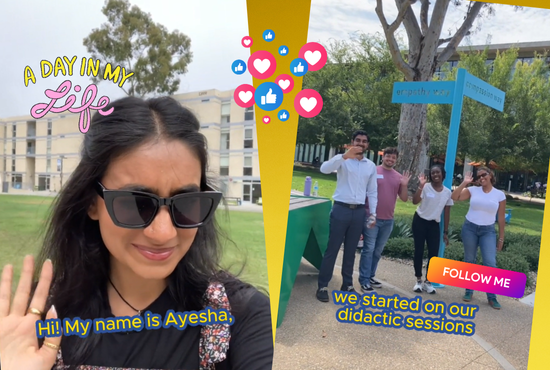
Curious how to become a future partner institution for CAmP? Email Jenna Tutjer at jtutjer@health.ucsd.edu.
All programs and initiatives coordinated by the Sanford Institute for Empathy and Compassion are designed and implemented in full compliance with Proposition 209 and the University of California Anti-Discrimination Policy.
In accordance with applicable Federal and State law and University policy, the University of California does not discriminate, or grant preferences, on the basis of race, color, national origin, religion, sex, disability, and/or other protected categories.
More information about Proposition 209 can be found here. More information about the University of California Anti-Discrimination Policy can be found here.